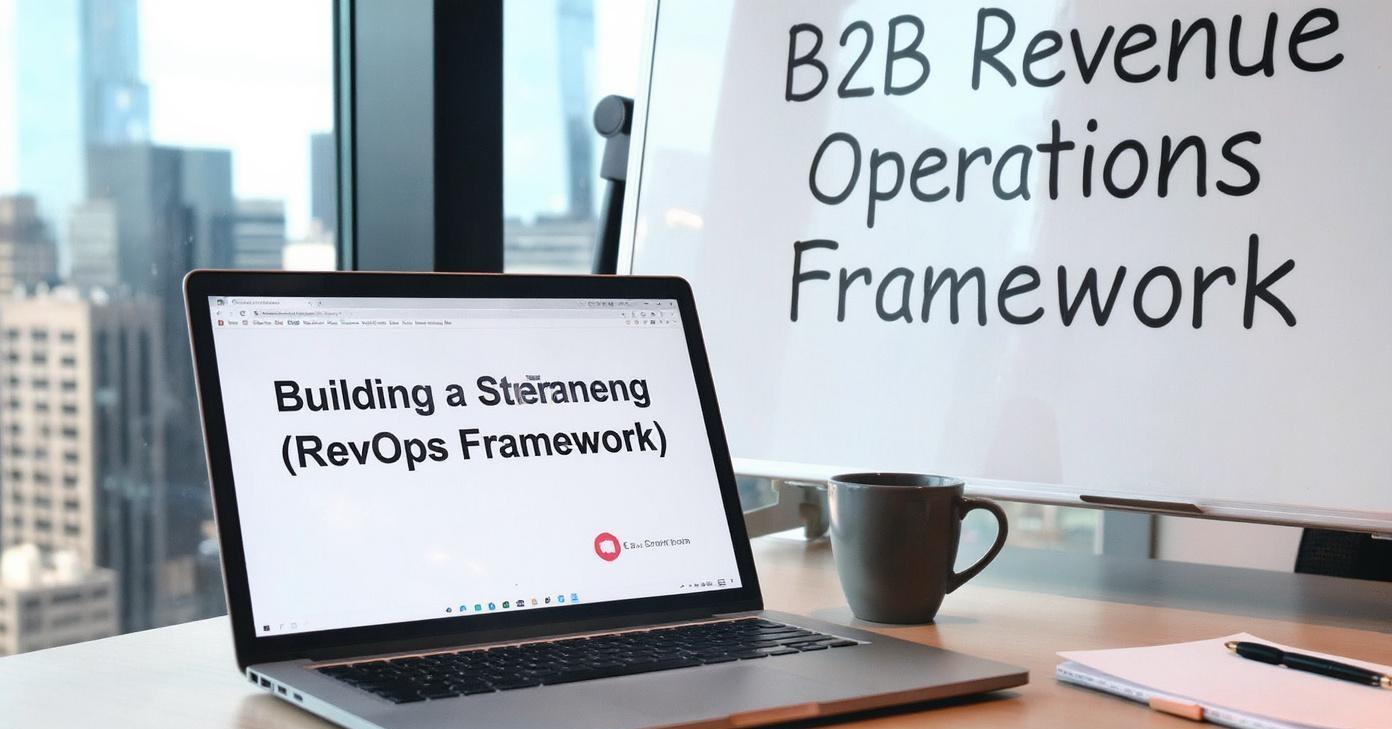B2B Revenue Operations: Align People, Processes, Data

In the fast-paced B2B market, organizations are increasingly leveraging B2B Revenue Operations to drive revenue growth and operational efficiency. Revenue operations, commonly known as RevOps, aligns sales, marketing, and customer success teams into a cohesive strategy. By integrating processes, technology, and data, companies can improve collaboration, streamline workflows, and achieve predictable revenue outcomes. Implementing a robust RevOps framework is essential for businesses aiming to scale efficiently and maintain long-term success.
Understanding B2B Revenue Operations
B2B Revenue Operations is a strategic framework designed to align sales, marketing, and customer success teams to maximize revenue performance. Traditionally, these departments operate independently, which can result in misalignment, duplicated efforts, and lost revenue opportunities. RevOps addresses these challenges by creating a unified strategy, fostering collaboration, and ensuring all teams are accountable for overall revenue goals.
A successful RevOps framework relies on three core elements: standardized processes, technology integration, and data-driven insights. Standardized processes ensure clarity of responsibilities and improve efficiency. Integrated technology allows seamless communication, performance tracking, and real-time visibility. Data-driven insights enable organizations to make informed decisions, forecast revenue accurately, and continuously optimize strategies.
Aligning Teams for Unified Objectives
Team alignment is a critical component of B2B Revenue Operations. Misalignment between sales, marketing, and customer success can lead to inefficiencies and inconsistent customer experiences. Establishing shared KPIs and revenue goals ensures all teams work toward a common objective. Marketing teams focus on lead generation, sales teams on converting leads into customers, and customer success teams on retention and satisfaction. By connecting departmental objectives to overall revenue targets, organizations promote collaboration and drive business growth effectively.
Optimizing Processes for Efficiency
Process optimization is essential to a strong B2B Revenue Operations framework. Mapping the revenue lifecycle, from lead generation to customer management, helps identify inefficiencies and areas for improvement. Standardized processes reduce errors, enhance consistency, and improve customer interactions. Automation of repetitive tasks such as reporting, follow-ups, and data entry allows teams to focus on high-value activities. Optimized processes increase productivity, accelerate response times, and contribute directly to revenue growth.
Leveraging Technology in RevOps
Technology integration is crucial for a successful B2B Revenue Operations framework. CRM systems, marketing automation platforms, and analytics tools must work together to provide a comprehensive view of customer interactions and revenue performance. Integrated technology ensures that all teams have access to accurate data, enabling informed decision-making and collaboration. Marketing teams can track lead engagement, sales teams can monitor deal progress, and customer success teams can measure satisfaction and retention. Effective technology deployment supports operational efficiency and predictable revenue outcomes.
Data-Driven Decision Making
Data is a central component of B2B Revenue Operations. By analyzing insights from sales, marketing, and customer success, organizations can make informed decisions, forecast revenue, and prioritize opportunities. Predictive analytics enables teams to anticipate customer behavior, optimize resource allocation, and improve overall performance. Transparent reporting ensures accountability and helps identify areas for continuous improvement. Data-driven strategies allow organizations to refine processes and achieve long-term revenue goals.
Customer-Centric Revenue Operations
A customer-focused approach is key to a successful B2B Revenue Operations framework. Understanding the customer journey and aligning internal teams to meet customer needs improves satisfaction, retention, and revenue. Customer-centric strategies involve mapping buyer personas, monitoring engagement, and personalizing interactions across the sales cycle. Feedback from post-sale interactions helps refine processes, enhance offerings, and uncover upselling or cross-selling opportunities. Integrating customer insights into RevOps ensures that revenue strategies are aligned with customer expectations.
Measuring Performance and Success
Measuring success is critical to sustaining an effective B2B Revenue Operations framework. Organizations should evaluate performance across revenue growth, operational efficiency, team alignment, and customer satisfaction. Key metrics include lead-to-opportunity conversion rates, sales cycle duration, churn rate, and marketing ROI. Dashboards and real-time reporting tools enable leaders to monitor metrics, identify trends, and make data-driven adjustments. Consistent measurement ensures the RevOps framework remains agile and responsive to business needs.
Scaling the RevOps Framework
As businesses grow, scaling B2B Revenue Operations is essential. A scalable framework ensures that processes, technology, and teams can manage increased workload without compromising efficiency or customer experience. Standardization, automation, and effective data management practices support scalability. Continuous training ensures that teams can effectively use RevOps tools and follow standardized processes. Cultivating a culture of collaboration and continuous improvement enables organizations to adapt to market changes and sustain long-term revenue growth.
Best Practices for Implementing RevOps
Best practices are critical for building a strong B2B Revenue Operations framework. Encourage cross-functional collaboration to reduce silos and improve communication. Define clear roles, responsibilities, and accountability across teams. Implement a unified technology stack integrating CRM, marketing automation, and analytics platforms. Standardize processes throughout the revenue lifecycle for consistency and efficiency. Leverage data insights and predictive analytics to guide decision-making. Monitor KPIs regularly and adjust strategies based on performance. Prioritize customer experience to enhance satisfaction, retention, and lifetime value.
Strategic Benefits of B2B Revenue Operations
Organizations that adopt B2B Revenue Operations gain a competitive edge. Aligned teams, optimized processes, and actionable insights enable faster decision-making, higher conversion rates, and improved customer retention. RevOps provides a holistic view of revenue, helping businesses identify opportunities, reduce risks, and make informed strategic decisions. In today’s competitive B2B environment, a strong RevOps framework is essential for operational efficiency, scalability, and sustainable growth.
About Us : Acceligize is a global B2B demand generation and technology marketing company helping brands connect with qualified audiences through data-driven strategies. Founded in 2016, it delivers end-to-end lead generation, content syndication, and account-based marketing solutions powered by technology, creativity, and compliance.
- Art
- Causes
- Crafts
- Dance
- Drinks
- Film
- Fitness
- Food
- Jogos
- Gardening
- Health
- Início
- Literature
- Music
- Networking
- Outro
- Party
- Religion
- Shopping
- Sports
- Theater
- Wellness




